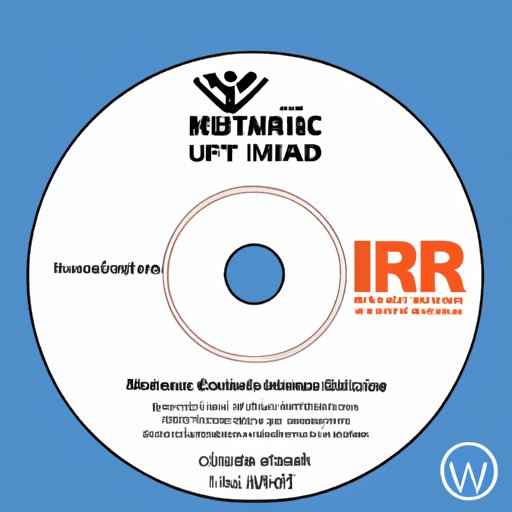Introduction
A record label is a business that works with artists to develop, promote, and distribute their music. Record labels provide a range of services including professional resources, access to a wider audience, and distribution of music. Record labels are integral to the success of many artists as they offer a platform for their work to be heard and give them the tools to build their careers.
Exploring the Benefits of Working with a Record Label
When an artist signs with a record label, they gain access to a range of professional resources that can help them to grow their career. The label provides the guidance and support needed to take the artist’s career to the next level. In addition, record labels have the ability to reach a much wider audience than independent artists, as they have access to a greater promotional budget and contacts in the music industry.
Record labels also play an important role in the distribution of music. They are responsible for getting the music out to radio stations, streaming services, and other outlets where it can be heard by a larger audience. This is crucial for an artist’s success as it allows them to get their music into the hands of fans who may not have otherwise heard it.

Breaking Down the Components of a Record Deal
When an artist signs a record deal, there are several components that must be taken into consideration. These include royalties, advances, promotion and marketing, and creative control. Royalties refer to the money that an artist earns from the sale of their music. Advances are payments made to the artist before the release of the album, which are then recouped from future royalties. Promotion and marketing refers to the activities undertaken by the label to increase awareness of the artist and their music.
Creative control is another important aspect of a record deal. This refers to the amount of input that the label has in the artist’s creative process. An artist will typically retain some degree of control over their own work, but the label may provide input or direction in certain areas.
Understanding How a Record Label Helps Market an Artist
One of the key roles of a record label is to market and promote an artist. This includes providing digital and physical distribution of the artist’s music. Digital distribution involves making the artist’s music available on streaming services such as Spotify and Apple Music. Physical distribution involves selling the artist’s music in stores or online.
Record labels also help to create a social media presence for the artist. This involves setting up accounts on platforms such as Twitter, Instagram, and Facebook, which can be used to engage with fans and share updates about new releases. Additionally, record labels may assist with booking touring opportunities for the artist, which is another important way to generate income and promote their music.

Investigating the Pros and Cons of Signing with a Major Label
When considering signing with a record label, it is important to weigh up the pros and cons of signing with a major label or an independent label. Major labels typically offer larger advance payments and increased exposure due to their extensive promotional budgets. They also have more professional resources at their disposal, such as access to top producers and engineers.
However, signing with a major label often means sacrificing some degree of creative control. Major labels usually have rigid contractual agreements and lower royalty rates than independent labels. Additionally, there may be restrictions placed on the type of music that the artist can produce, which can limit their artistic freedom.

Analyzing the Impact of Record Labels on the Music Industry
In recent years, the music industry has undergone a number of changes, largely driven by the rise of streaming services such as Spotify and Apple Music. These services have increased the popularity of music streaming and downloads, allowing artists to reach a wider audience than ever before. As a result, record labels have seen a surge in profits, as streaming services pay royalties for each stream or download.
At the same time, the consolidation of power among major labels has led to an increased concentration of wealth and influence within the music industry. This has resulted in a decrease in music sales, as the labels are focused on maximizing profits rather than developing and promoting new talent.
Finally, the rise of streaming services has had a significant impact on the way that music is consumed. Streaming services have changed the way that people listen to music, with many now opting to access music via subscription rather than purchasing individual albums or tracks.
Conclusion
It is clear that record labels play a vital role in the development and success of artists. By providing access to professional resources, reaching a wider audience, and distributing music, record labels are crucial to an artist’s success. However, it is important to understand the pros and cons of signing with a major label, as well as the impact that record labels have had on the music industry.
(Note: Is this article not meeting your expectations? Do you have knowledge or insights to share? Unlock new opportunities and expand your reach by joining our authors team. Click Registration to join us and share your expertise with our readers.)
